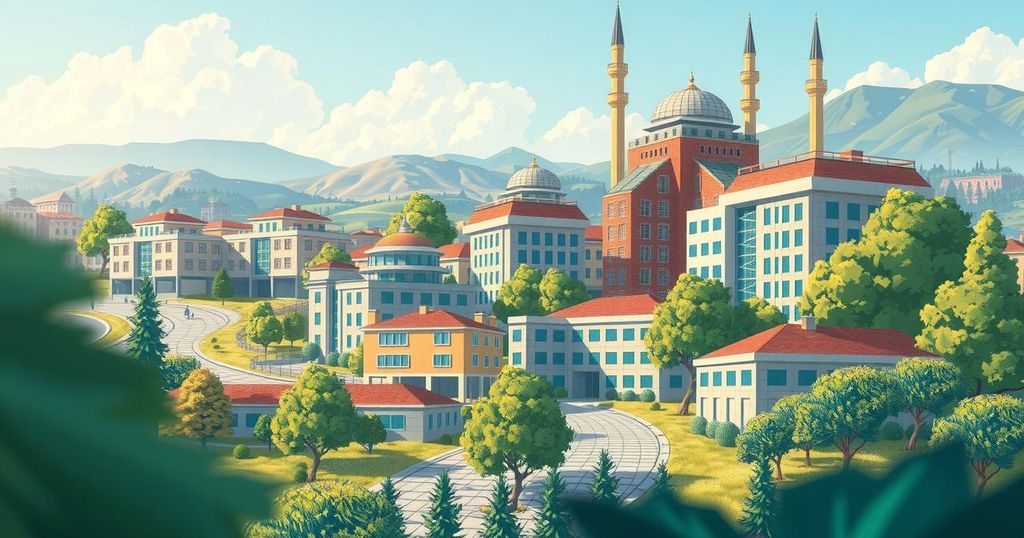The Imperative of Lifting Sanctions to Rebuild Syria

A recent survey indicates that despite ongoing volatility, 70% of Syrians feel optimistic about the future under interim President Ahmed al-Sharaa. However, the dire economic situation exacerbated by Western sanctions poses significant challenges to recovery. Lifting these sanctions could facilitate Syria’s reintegration into the global economy and prevent the rise of extremism.
The recent survey, a comprehensive public poll conducted in Syria, indicates a surprisingly positive outlook among the population, despite the ongoing turmoil. Following the ousting of Bashar al-Assad after a lengthy dictatorship, Syria’s economy has suffered significantly, and sectarian violence has recently escalated. Nevertheless, the poll reveals that 70% of Syrians express optimism about their future, with 80% feeling a greater sense of freedom compared to the Assad regime.
Despite the challenges posed by a divided society, the confidence in interim president Ahmed al-Sharaa is noteworthy. Established in late January, Mr. Sharaa has initiated some reforms, including the formation of an interim cabinet featuring representatives from various backgrounds, aiming to alleviate concerns over his centralizing tendencies. However, the effectiveness of this cabinet will depend on the genuine authority granted to its members.
The survey highlights the pressing need for economic revitalization, as 58% of respondents feel that the economy has either stagnated or further declined since Mr. Sharaa’s ascension. The interim president faces a daunting task, as most civil servants have not received salaries since his takeover, and there is a critical need for cash flow to stabilize the economy.
A significant barrier to recovery remains the Western sanctions imposed on Syria, originally intended to isolate Mr. Assad. These sanctions restrict foreign investment crucial for reconstruction and limit Syria’s participation in the global banking system. The blockade hampers essential economic activities and leaves Syria reliant on imports under unfavorable conditions.
Although there are apprehensions regarding Mr. Sharaa’s past affiliations with jihadist groups, the consequences of inaction are dire. Failure to revitalize Syria’s economy could lead to a resurgence of extremist factions. A potential solution would involve a conditional lifting of sanctions that could be reinstated if Mr. Sharaa demonstrates any inclination towards radicalism. Therefore, a strategic approach to sanctions could facilitate economic recovery, allowing the beleaguered Syrian populace a chance to rebuild their nation.
In summary, the poll results reflect a surprising optimism among Syrians despite widespread hardship and violence. Interim President Ahmed al-Sharaa has initiated steps toward political stability; however, economic recovery remains critical. Lifting Western sanctions is essential for re-establishing Syria’s economy and preventing the rise of extremism. By supporting the new government, the West can provide Syrians with the opportunity to reconstruct their society effectively.
Original Source: www.hindustantimes.com








